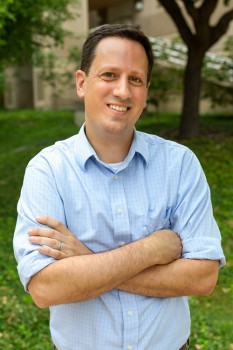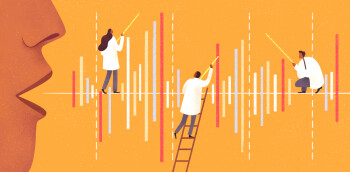Ph.D. - Developmental Psychology
University of North Carolina at Chapel Hill - 2005

Noah Sasson
Professor - Department of Psychology
Research Interests: Social cognition and interaction in autism, with a focus on bi-directional breakdowns in understanding between autistic and non-autistic people
972-883-2541
GR 4.116
Social Cognition and Interaction in Autism Lab
Curriculum Vitae
Not currently accepting undergraduate students
Professional Preparation
B.A. - English
Franklin and Marshall College - 1997
Franklin and Marshall College - 1997
Research Areas
Research Interests
My lab seeks to better understand and measure mechanisms of social disability in autism. Historically, my work focused on one mechanism in particular, social cognition, a term that refers to the perception, processing, and interpretation of social information. More recently, my lab has examined social disability in autism from a relational perspective, with a primary focus on bi-directional breakdowns in communication and understanding between autistic and non-autistic people.Publications
Appointments
Professor
The University of Texas at Dallas [2021–Present]
The University of Texas at Dallas [2021–Present]
Associate Professor
The University of Texas at Dallas [2015–2021]
The University of Texas at Dallas [2015–2021]
Assistant Professor
University of Texas at Dallas [2009–2015]
University of Texas at Dallas [2009–2015]
Post-doctoral Fellow
Children's Hospital of Philadelphia [2008–2009]
Children's Hospital of Philadelphia [2008–2009]
Post-doctoral Fellow
University of Pennsylvania [2007–2008]
University of Pennsylvania [2007–2008]
Post-doctoral Fellow
University of North Carolina at Chapel Hill [2005–2006]
University of North Carolina at Chapel Hill [2005–2006]
National Science Foundation Pre-doctoral Fellow
University of North Carolina at Chapel Hill [2002–2005]
University of North Carolina at Chapel Hill [2002–2005]
Teaching Fellow
University of North Carolina at Chapel Hill [2001–2002]
University of North Carolina at Chapel Hill [2001–2002]
Teaching Assistant
University of North Carolina at Chapel Hill [2000–2001]
University of North Carolina at Chapel Hill [2000–2001]
Research Assistant
University of North Carolina, Chapel Hill [1999–2000]
Frank Porter Graham Child Development Center
University of North Carolina, Chapel Hill [1999–2000]
Frank Porter Graham Child Development Center
Projects
.
Presentations
Interpersonal Mechanisms of Social Disability among Autistic Adults
2021/03 Talk given at Durham University, UKWho Lacks Reciprocity? Challenging Precarious Assumptions about Autistic People
2021/05 Comet Corner SeriesDouble Empathy Podcast
2019/07News Articles
Study Challenges Assumptions About Social Interaction Difficulties in Autism
 Autism is characterized in part by an individual’s challenges communicating and interacting socially with others. These difficulties have typically been studied in isolation by focusing on cognitive and behavioral differences in those with autism spectrum disorder, but little work has been done on how exchanges for autistic people unfold in the real world.
Autism is characterized in part by an individual’s challenges communicating and interacting socially with others. These difficulties have typically been studied in isolation by focusing on cognitive and behavioral differences in those with autism spectrum disorder, but little work has been done on how exchanges for autistic people unfold in the real world.Researchers at The University of Texas at Dallas recently turned the spotlight on social interaction in autism by examining it as a two-way street. Their results, published in December in the journal Autism, suggest that successful interactions for autistic adults revolve around partner compatibility and not just the skill set of either person.
Study: Social Biases Contribute to Challenges for Those with Autism
A new study by a UT Dallas professor found that negative first impressions formed by potential social partners may reduce the quality of social experiences for people with autism.The study was co-authored by Dr. Noah Sassonand doctoral student Daniel Faso in collaboration with researchers at Indiana University and Emerson College. In the study, non-autistic participants reported their first impressions of individuals with autism from videos of them during social interaction.
The researchers found that the people with autism were rated similarly to non-autistic adults on trustworthiness and intelligence, but less favorably on likeability and awkwardness — traits that are important to connecting with other people. Participants watching the videos also reported greater reluctance to pursue social interaction with the adults with autism. Colleagues at Emerson College reported similar findings for children with autism.


